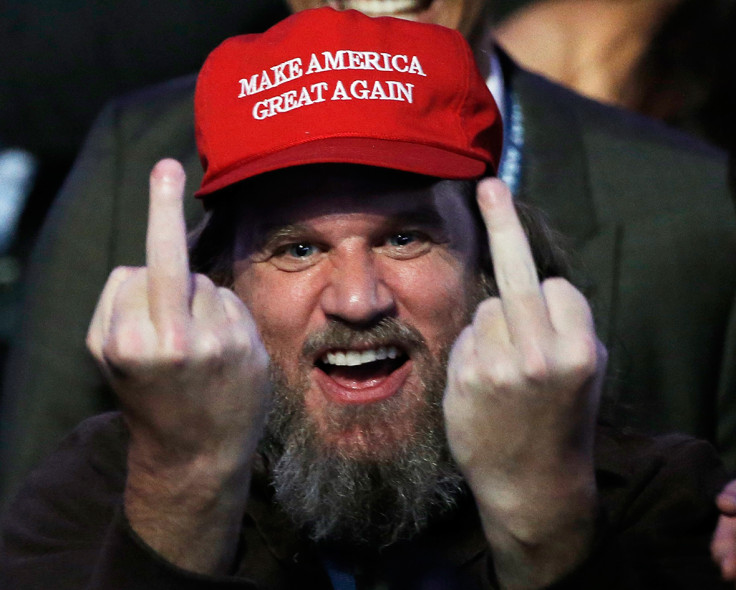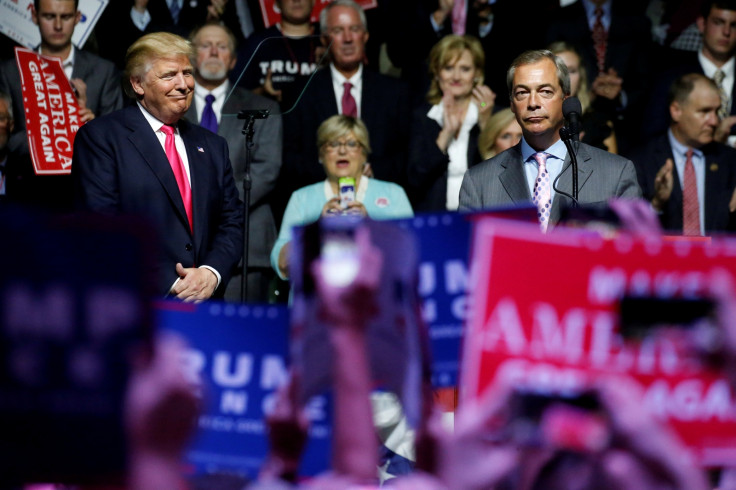Donald Trump has delivered an earthquake - now prepare for the aftershocks
We have entered the era of post-truth politics, where the most powerful person in the world is a liar.
So America was not ready for a woman president after all – at least not the one on the ballot. One Clinton in the White House, they decided, was enough.
Instead the people of the most powerful country in the world have decided to elect someone widely viewed by the rest of the planet as a liar, fraud, sexist, racist, misogynist and narcissist. None of that mattered. They, particularly the white working classes who felt that economics and politics have left them behind, wanted change. Big change. They got it.
There have been times during recent weeks when it has felt fair and reasonable to add proto-fascist to the possible list of -ist labels. It is hard to view differently someone who demonised entire races and religions, who vowed during the campaign only to accept the result if he won, and to lock up his opponent and have her prosecuted for crimes that appeared to be as vague and unproven as the few actual policy proposals he put forward. We will see in the coming weeks and months whether he thinks losing an election most of the world thought she would win is punishment enough. She and her husband will certainly be hurting right now.
Now that Trump has won, the world holds its breath even more nervously. From world trade to climate change, from the future of Nato to the war on Islamic terrorism, big issues that impact upon us all have tilted somewhat on their axis.
During our own referendum campaign in June, every time I ventured out of the UK I was met with people from other countries stunned that we were even thinking of leaving the EU. Then I would come back home and hear so many people here – particularly outside London – who were determined that it is exactly what we should do. It has been the same for Americans travelling abroad in recent weeks – nobody outside America (and Putin's Russia) seemed to want Trump. But Trump is what the world now has.
The Brexit comparisons are obvious. A divided country still healing from the scars of the global financial crisis for which working people felt they – and not those who caused the crisis – paid the price. A feeling that the pace of change was too fast and the system needed a kick up the backside to get the message. An anti-establishment and anti-politics and anti-mainstream media mood. The politics of identity being turned into the politics of blame and becoming centred on immigration. Hugely complicated issues reduced to simple messages repeatedly hammered home by the campaign and endlessly ventilated on social media. For 'take back control' read 'make America great again' and 'build a wall.'

We also saw all of the pollsters and most of the pundits getting it badly wrong, leading the famed bookmakers who 'never get it wrong' to get it wrong yet again.
We had it confirmed that we are now in the era of post-truth politics. Trump made statements that made Boris Johnson's red bus lies look tame by comparison. He said and did so many things that would frankly have killed off any other candidate in the past. The 'pussy grabbing' tape and his 'locker room talk' defence of sexual assault were but the most high profile as the campaign neared its close, when only the FBI director James Comey saved him from further embarrassment.
When people feel that they are powerless and left behind, a populist message and messenger will resonate far more powerfully than someone offering stability and continuity.
Prior to that there had been all the proof of the lies and the frauds, there had been the mocking of the disabled, the taunting of and incitement against the media doing its job of covering his campaign, the bullying and bragging and all the rest of it. Yet still, in the country that has produced some of the greatest leaders time ever gave us, he has added the name Trump, and all it represents, to a roll call of history which includes Washington, Jefferson, Lincoln, Roosevelt, Truman, Eisenhower, Kennedy and Reagan.
Where American politics leads other democracies tend to follow, and nowhere more so than in the world of campaigning. Populists the world over, not least in Europe, will take heart from this. The insurgent has an inbuilt advantage. The more noise you make the more people seem to listen. Making people laugh, or making them feel, is as important as making them think. Getting down and dirty, despite what Michelle Obama said about the need to stay high when your opponent goes low, seems to have won the day.

It was as nasty, negative and mean-spirited a campaign as any of us can remember anywhere in the world. Donald Trump takes the credit for that one. How distant in time and tone now seems the original video with which Hillary Clinton launched her campaign, full of hope and policy and positive messages for the future. In making the campaign all about him, Trump managed to drown that out and shift her tone so that the choice, in the end, became one of who people disliked the least.
How did the contest of such a great nation come down to this? Because that is what the systems and the people of that nation delivered. A politics that requires too much money, billion-dollar campaigns that last as long as they do because the rules date from a time when there was no TV and no air travel, so candidates needed that time to travel through the States. A media culture that is so obsessed with fame and wealth that it makes a reality TV show the perfect political springboard for someone like Trump. A new social media landscape that is the perfect incubator for conspiracy theories, hate, anger and political polarisation. But all that still needed a candidate able and willing to turn all that to his advantage. Trump did just that.

It is hard to see how Trump now unites America, or whether he will even try. He may think that with him in the White House and with the Republicans in control of both houses of Congress he can set about delivering the change has promised without worrying about such things as national unity.
Trump eyes Vladimir Putin not just with a certain admiration as a strongman leader, but with envy too. He sees a leader who can get more done when he has no real opposition, control of the Parliament, the media, civil society and all the other checks on power. This is the other worrying lesson to draw from the Obama years of gridlock – that democracies seem in some ways to operate at a disadvantage to non-democracies and pseudo democracies.
But if he had campaigned overtly for that kind of power, it is unlikely he would have got as close as he did. So, just as the Brexiteers had to do, he needed to dress himself up as the crusader for the common man, taking on the elites on behalf of those who felt powerless and left behind. Given who and what he is it was of course a gigantic con, with many lies wrapped around it. But when people feel that they are powerless and left behind, a populist message and messenger will resonate far more powerfully than someone offering stability and continuity.
Trump promised an earthquake. He has delivered it. And the aftershocks will be with us for years.
Alastair Campbell is a British strategist and writer.
© Copyright IBTimes 2025. All rights reserved.





















